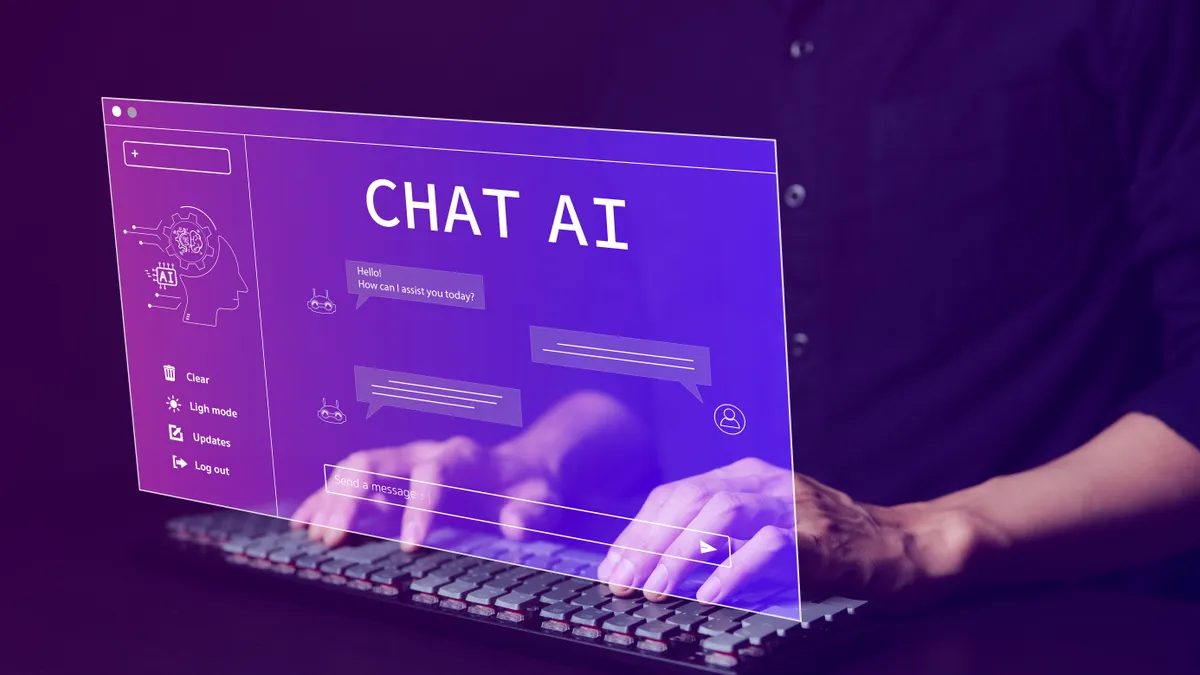Dive Brief:
- The demand for candidates with generative artificial intelligence (GenAI) skills has taken off, from 519 job postings in 2022 calling for GenAI skills to more than 10,000 since last December, when ChatGPT debuted, according to new findings by labor analytics firm Lightcast — a 1,848% increase. By September 2023, there have been more than 385,000 postings for all forms of AI in 2023 alone, the research showed.
- The most sought-after roles are those for developing new AI applications, such as data scientists and software engineers, according to the research. A notable exception is curriculum writers, as the education community works to bring AI knowledge into its offerings, Lightcast noted in an Oct. 19 press release. Top GenAI employers include: side hustle app FUD, educational company Chugg, Meta, Capital One, Pacific Northwest National Laboratory and Amazon.
- Most of the occupations are those already involved in AI development, such as machine learning and AI engineers, suggesting companies are going through an intense process as they develop new applications, Lightcast said. “More established AI technologies still dominate job postings, and generative AI remains comparatively small,” the firm said. For example, machine learning skills have been requested in 163,559 postings, it pointed out.
Dive Insight:
The apparent lightning speed with which the demand for AI skills has escalated in a growing number of industries confirms what experts have been predicting for a while: AI is decidedly on business leaders’ radar and quickly becoming an integral part of many workplaces.
“Adding a new skill to job descriptions is often a sign that a company has moved from experimenting with a new technology to making a real strategic commitment to it,” Lightcase senior economist Layla O’Kane explained in the release. “Right now, a lot of organizations are still in the experimental stage, but as they make key business decisions, we may well see this list grow.”
Also, the increase in demand for curriculum writers “may be the first sign of the second wave of AI, where this technology starts to reshape jobs outside the tech industry. The future of work is going to be defined by how humans work alongside AI, and this will be a key occupation to watch,” O’Kane added.
All jobs posted on Indeed – from truck driver to software engineer – have skills that can be done or augmented by GenAI, with HR jobs near the high end of the exposure, Indeed noted in September. Close to three-fourths of workers surveyed by Adecco Group are already using GenAI, according to a report released earlier this month.
The good news is that employees may be becoming more comfortable with the integration of AI into the workplace, May research by Robert Half found. Four in 10 of the more than 2,500 U.S. workers surveyed believe the technology will have a positive effect on their career, the consulting firm said.
Insights from experts should also ease worker concerns they’ll be ousted by the technology. In particular, GenAI is less likely to replace an entire job, but instead will serve as a tool to augment or streamline parts of a job, Indeed’s chief economist said.
What employees want and urgently need is guidance from their employers on GenAI, according to the Adecco Group report. The upside for employers is that it gives them an opportunity to invest in relevant upskilling that will engage workers, including training on human skills, such as emotional intelligence and empathy — skills workers believe will be more influential than AI, the report noted. Employers that offer training may also have a leg up in retention efforts, Adecco found.
“AI is an addition to other human and specialized skills, not a substitution,” O’Kane said. “If you’re looking for a career in artificial intelligence, clearly you need generative AI skills, but you also need other AI skills, such as machine learning and neutral networks. And if you’re looking to get ahead in a field that may be reshaped by AI, you still need the more traditional skills there as well.”











